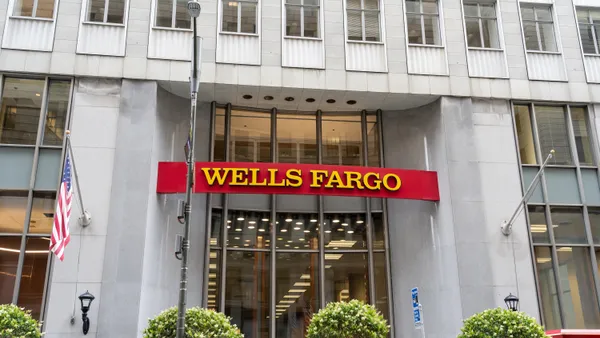Dive Brief:
-
Of major companies across industries, Apple and Amazon clenched the fourth and eighth spots, respectively, of the 64th edition of the Fortune 500 list. Though Apple's overall revenue fell behind that of Walmart, Exxon Mobil and Berkshire Hathaway, its $850 billion market cap led it to outperform every other company.
-
The tech sector dominated Fortune's list of the most valuable companies, with Apple valued at $921 billion, followed by Amazon at $765 billion and Alphabet at $750 billion. Microsoft and Facebook rounded out the top five most valuable tech companies with $746 billion and $531 billion market values, respectively.
- The top 10 Fortune 500 tech companies included Apple, Alphabet, Microsoft, IBM, Dell Technologies, Intel, HP Inc., Cisco Systems and Facebook. Oracle and Hewlett Packard Enterprise fell just shy of the top 10.
Dive Insight:
Tech companies appeared all along the Fortune 500 list, illustrating the industry's strong hold on the U.S. economy. Because practically every person and industry is invested in or uses technology, the industry's presence on Fortune's lists are expected to grow and improve.
Apple dropped from its No. 3 spot on last year's total list, but it still made a 6% increase in annual sales year-over-year. The company is also recognized as most innovative for its product line and improvements and the software, hardware and AI integrated into its products.
But Apple may be taking note from Microsoft as it begins to eye the enterprise.
Microsoft has been carving itself out as a one-stop-shop for the enterprise, shifting focus away from the average consumer. Nearly two-thirds of Microsoft's revenue in Q2 2018 was from corporations and the government. The cloud is largely contributing to Microsoft's steady hand, including Office 365, which CEO Satya Nadella predicts to be "a lot bigger than anything we've achieved."
IBM has also made conscious changes to its offerings, pulling itself out from its revenue rut after 22 consecutive quarters. Big Blue can thank blockchain, AI and cloud technologies. However, its revenue was still down 1% year-over-year.
Dell was able to hold the 41st spot on the list while it mulls over the possibility of going public. In 2016 the legacy company merged with EMC in an effort to pay off its estimated $50 billion in debt.












